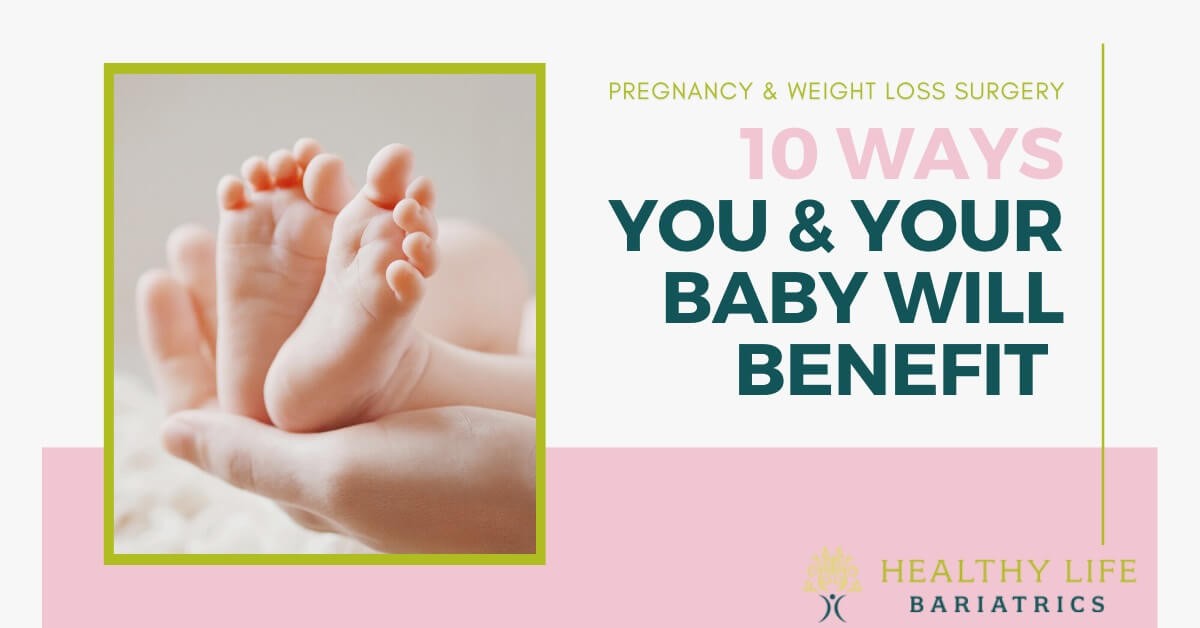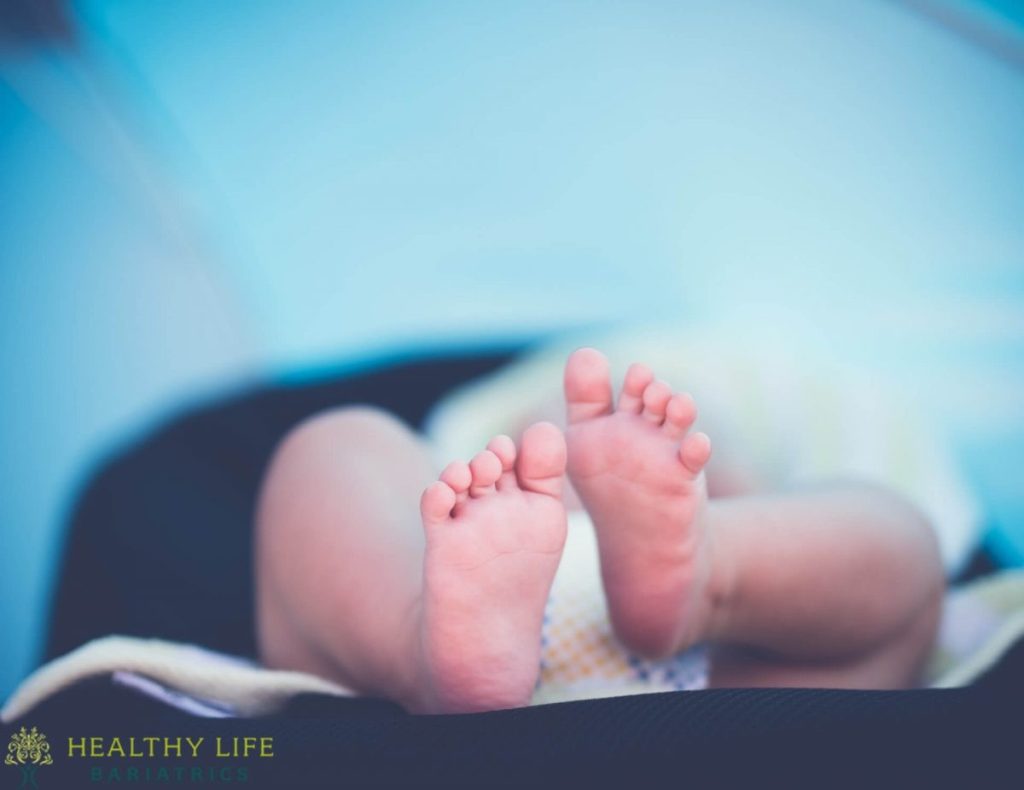
If you are about to plan a child and have an issue of obesity, then consult a professional for weight loss surgery. Pregnancy and childbirth are two of life’s greatest miracles. If you are a woman of childbearing age, you may find it difficult to get pregnant if you also suffer from obesity. Not only can being obese affect your fertility, but having a high body mass index (BMI) can lead to various health issues during pregnancy.
Problems associated with obesity during pregnancy include:
Preeclampsia: High blood pressure characterizes this pregnancy condition. It can negatively affect organs such as the liver and kidneys. Preeclampsia typically shows up after 20 weeks of pregnancy.
Gestational Diabetes Mellitus: This condition is caused by a hormone made in the placenta that prevents the body from using insulin, causing blood sugar levels to spike.
Issues for the Baby: Children born to mothers with gestational diabetes mellitus have a higher risk of developing obesity and type 2 diabetes later in life. Obesity and weight-related illnesses can also lead to stillbirth or the baby’s death shortly after birth.
These are just a few of the issues you face if you manage to get pregnant while overweight. Studies show that weight loss surgery, such as gastric sleeve (laparoscopic sleeve gastrectomy) and gastric bypass surgery (Roux-En-Y gastric bypass), can help you lose significant weight and reverse weight-related illnesses, leading to amazing benefits for both mother and baby.
If you are obese and thinking about becoming pregnant, here are ten ways you and your baby could benefit from the life-changing effects of bariatric surgery.

Women who undergo bariatrics stand to lose between 50% to 70% of their excess weight. That means that if you are 100 pounds overweight, you could lose between 50 and 70 pounds. The excess fat tends to melt away quickly. It would be best if you experienced drastic weight loss within the first year. That is when the weight loss will taper off and come off more slowly up until the two-year mark. To ensure the weight loss surgery is healthy for both mother and baby, experts recommend that you wait at least 12 to 18 months after surgery to conceive.
One of the most surprising effects of bariatric surgery is fertility improvement in women of childbearing age. A high BMI can make it difficult to conceive. In many cases, even IVF (in vitro fertilization) treatments fail when the woman attempting to get pregnant suffers from obesity. Weight loss surgery tends to return a woman’s fertility to pre-obesity conditions. Therefore, it makes it much easier to get pregnant after the weight has come off and stabilized.
A BMI of over 30 is associated with miscarriage and recurrent miscarriage. Research suggests that weight loss can reduce the risk of miscarriage, even in women with a history of miscarrying.

Studies show that women with weight loss surgery experience uncomplicated pregnancies and births compared to obese women who manage to get pregnant and conceive. This includes lowered risks of high blood pressure disorders, postpartum hemorrhage, and gestational diabetes.
An elevated BMI can lead to several issues for the baby in utero. It also causes problems during childbirth and afterward, as the child grows. For example, a high body mass index has been linked to congenital disabilities, larger than average birth weights (fetal macrosomia), impaired growth, and childhood obesity. Having bariatric surgery such as Gen-Y-Roux (gastric bypass) can lower these risks or mitigate them entirely.
Obese women are at a higher risk for various health complications, including cardiac dysfunction, sleep apnea, preeclampsia, and gestational diabetes. Studies show that many weight loss surgery patients experience a reversal of weight-related ailments. Some patients who are taking medications for diseases such as type 2 diabetes can stop taking their medications entirely.
Many bariatric surgery patients fear they will gain all the weight back during pregnancy. Weight gain after bariatric and during pregnancy is unavoidable and even recommended. For single pregnancies, you are recommended to gain 11 to 20 pounds. You are encouraged to gain 25 to 42 pounds for twins or multiples. Your bariatric surgeon and health care team will work with you to ensure you consume enough nutrients. This will keep your baby healthy as your pregnancy progresses.
Maternal weight loss surgery tends to produce children at less risk for childhood obesity. Consequently, the children are also at less risk for attaining a high BMI and becoming obese later in life.

Children born to obese mothers have an increased risk of breathing issues like asthma. Based on observations, this risk continues to age four. Achieving a healthy weight following weight loss surgery lowers this risk significantly.
Studies show that bariatric procedures can reduce your risk of developing cancer, including female cancers such as breast, ovarian, vaginal, vulvar, and endometrial cancers. This means that weight loss surgery can improve your quality of life. It will help you live a longer life as well. This is important for mothers who desperately want to watch their children grow up long into the future.
Women of childbearing age represent around 31% to 36% of all patients undergoing weight loss surgery. Numerous studies have shown a relationship between healthier pregnancies and births following bariatric procedures like gastric sleeve and gastric bypass. Both mother and child can benefit from a bariatric procedure if enough time elapses between the surgery and the time the woman conceives.
This is good news if you are currently obese and thinking about conceiving. Still, every woman is different. Learn if you are a good candidate for weight loss surgery and if having a procedure like the gastric sleeve would benefit you and your future children by scheduling a consultation with Dr. Babak Moeinolmolki of Healthy Life Bariatrics. If you are considering becoming pregnant, discussing surgery and its positive outcomes could be one of the most important decisions you ever make. Call today to discuss a time and general expense that might be right for you – (310)807-1735.